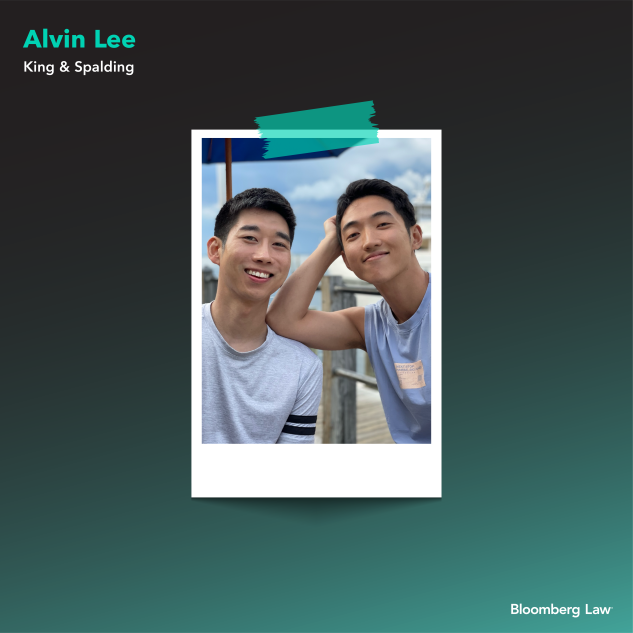Alvin Lee
Age: 40
Law Firm: King & Spalding
Practice Area: Energy
Title: Partner
Location: New York
Law School: Harvard Law School
Please describe two of your most substantial, recent wins in practice.
I recently helped JPMorgan secure a precedent-setting summary judgment victory in a $71 million contract dispute relating to Winter Storm Uri and its impacts on the Texas energy market. I have been representing JPMorgan since the immediate aftermath of the storm in February 2021, when it was sued in the first of approximately a dozen lawsuits filed against financial institutions (some also against JPMorgan) alleging that the storm constituted a force majeure event under renewable energy hedge agreements.
Such agreements are common project finance vehicles for renewable energy projects throughout the country, and our September 2023 summary judgment victory was the first definitive ruling that the storm did not qualify as force majeure. This was an especially rewarding victory given the issues at stake for the industry as well as my personal investment in the case over the past several years.
In April 2022, I also helped secure the complete dismissal of a $451 million lawsuit brought by Iberdrola, a Spanish energy conglomerate, against various directors and officers of Oaktree Capital, alleging that the directors and officers improperly conspired to terminate an Engineering, Procurement, and Construction (EPC) agreement to construct a 674-megawatt power plant in Salem, Massachusetts.
What is the most important lesson you learned as a first-year attorney and how does it inform your practice today?
Only a few months into my first year as an associate, I was asked to draft a major motion to dismiss for one of the firm’s biggest clients and was utterly terrified by the assignment. I remember obsessing over every decision I had to make—and not just major decisions like what arguments to make or what cases to cite, but also minor decisions like how to format the brief and whether the case caption looked right. It was stressful because I wasn’t sure I was experienced enough to make all these decisions on my own, but I told myself that nobody was going to make them for me, and that my job was to make the decision I thought was best based on the information available to me.
I ended up receiving a lot of praise for the draft and realized that my decision-making process—despite being somewhat obsessive—is what made my work product shine. While I know a lot more today than I did back then, I still use essentially the same decision-making process now: figure out what options are available, weigh the relative pros and cons of each, and make the decision I feel is best for the client. The difference today is that I’ve learned to have a lot more confidence in my judgment!
How do you define success in your practice?
I am only successful if my clients are happy. While that sounds deceptively simple, I realized early on that every client has different objectives—and that the entire purpose of my job is to make sure they achieve those objectives, not to seek out glory for myself.
So, while one client may be looking to secure a complete defense verdict in a high-stakes jury trial, another client may be looking to gain leverage in commercial discussions to offload a particular business line. Those are two very different objectives, and my job is to help my clients achieve both—and whatever else it is they’re looking to achieve.
What are you most proud of us a lawyer?
I’m most proud of my efforts to further diversity and inclusion in the legal profession as well as my efforts to mentor and develop the next generation of diverse attorneys. Simply put, I would not be in this profession if it weren’t for people who made those same investments in me early on in my career, so I know firsthand how important it is that we continue to work towards making the legal industry as equitable and inclusive as possible. It is something I strive towards every single day I show up to work.
Who is your greatest mentor in the law and what have they taught you?
One of my greatest mentors in the law is Rich Marooney, the office managing partner of King & Spalding’s New York office and one of the leaders of the firm’s business litigation practice group. Rich is a brilliant trial lawyer who has taught me to keep things simple and not overcomplicate our cases, especially before finders of fact. We also work together on a number of firm-building and associate development initiatives for the firm, and I trust his judgment more than anyone I’ve ever worked with.
Above all else, though, I respect Rich as a person because he is a true class act. Despite how adversarial litigation can be, and the tremendously high stakes we often have to contend with, Rich always treats everyone with professionalism and respect no matter what. Not every litigator adheres to that same principle, but it is one that I personally aspire to every day.
Tell us your two favorite songs on your summer music playlist.
This is probably a common choice, but I’m loving “Espresso” by Sabrina Carpenter. I’m also listening a lot to Dmitry Kabalevsky’s Violin Concerto because I happen to be performing it with my community orchestra this fall!
To contact the editors on this story:
Learn more about Bloomberg Law or Log In to keep reading:
See Breaking News in Context
Bloomberg Law provides trusted coverage of current events enhanced with legal analysis.
Already a subscriber?
Log in to keep reading or access research tools and resources.

